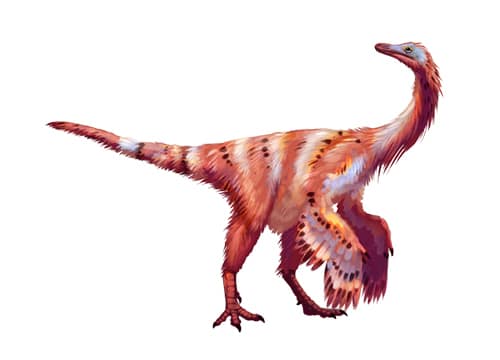Garudimimus


Name: Garudimimus
Pronounced: Gah-ru-di-mime-us 
Meaning: Garuda mimic
Type: Large Theropod
Length: 3 - 4.7 meters long
Diet: Omnivore
Period: Late Cretaceous
Years: 99-89 million years ago
Location: Mongolia
Description: Garudimimus is a genus of small, feathered dinosaur that lived during the Late Cretaceous Period, about 100-66 million years ago. It was a member of the group of dinosaurs called the theropods, which are characterized by their carnivorous diet and bird-like anatomy. Garudimimus was a small dinosaur, with an estimated length of about 4-5 feet and a weight of up to 50-100 pounds. It had a long, slender neck and a small head with a pair of large, forward-facing eyes, and a mouth full of sharp, serrated teeth, which it likely used for hunting and eating small prey. It had long, slender legs with three toes, and long arms with three fingers, which ended in sharp claws. It had a long, flexible tail, which it likely used for balance and support while running on its two hind legs. Garudimimus is known from a single, well-preserved fossil specimen, which includes a partial skeleton and a complete skull. It was discovered in Inner Mongolia, China, and is named after the Hindu god Garuda, who is depicted as a bird-like creature. Garudimimus is considered a basal member of the theropod group, and is thought to be closely related to other early members of this group such as Coppens spoof and Sinosauropteryx. Garudimimus is important because it is one of the few known dinosaurs with feathers, and provides important insights into the evolution of feathers and flight in dinosaurs. It is also significant because it is one of the few known dinosaurs from Inner Mongolia, and helps to fill in gaps in our understanding of the distribution and habitats of dinosaurs in this region. Garudimimus is also important because it is one of the few known dinosaurs from the Late Cretaceous Period, and helps to shed light on the diversity of dinosaurs during this time.
Loading images from Wikipedia
Loading a Random Dinosaur...


